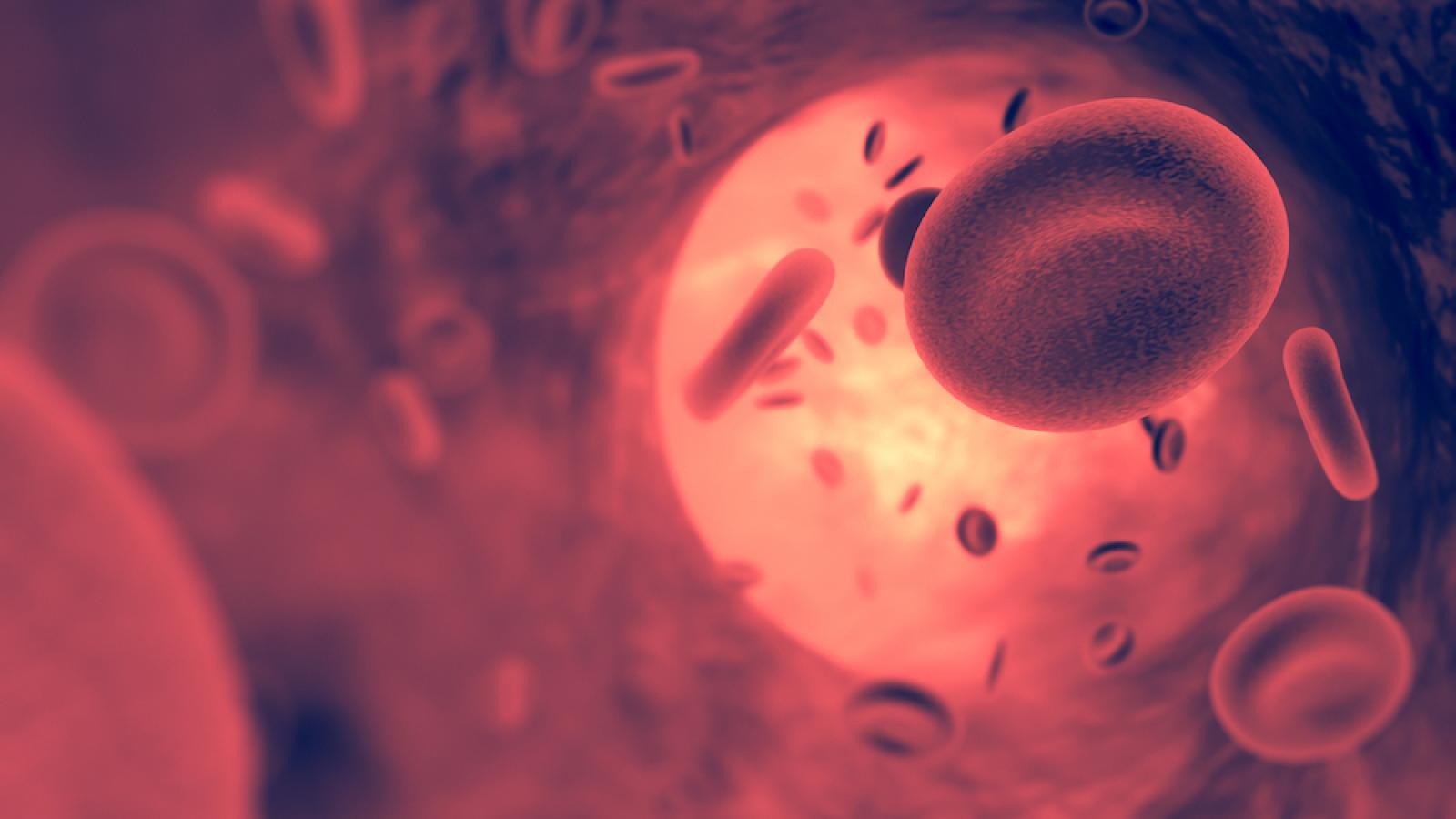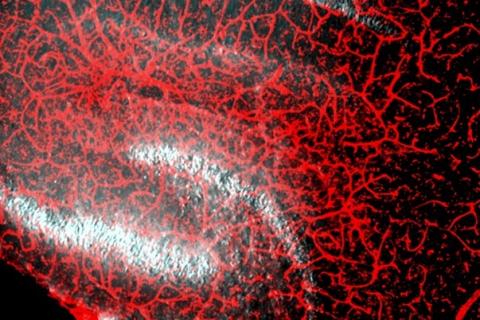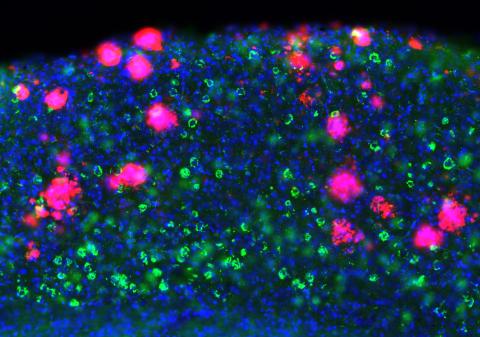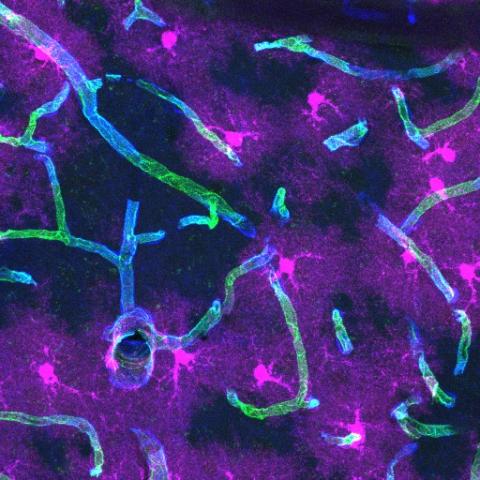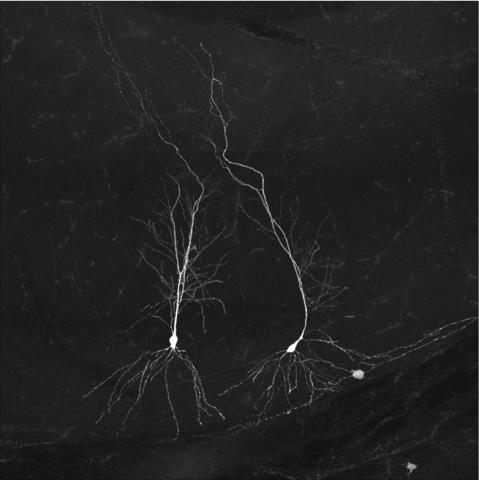Our brain has the richest network of blood vessels in the body. The integrity of these blood vessels can become compromised with age, in conditions such as diabetes and hypertension, and in people with heritable susceptibilities, reducing their ability to manage blood flow and clear waste. Consequently, brain cells become starved of oxygen and nutrients leading to neuronal damage and loss, and associated cognitive decline.
Vascular cognitive impairment, which encompasses vascular dementia, is the second most common type of dementia, resulting from vascular injury to the brain. Recent evidence also suggests that impaired blood flow and vascular function occur in several neurodegenerative diseases, including in pre-symptomatic Alzheimer’s disease. Despite the increased awareness of the importance of brain vascular health, identification of the mechanisms driving this vascular dysfunction remains a neglected area for research.
The UK DRI is uniquely positioned to address the vascular contributions to neurodegeneration at both a preclinical (Montagne, Diaz-Castro, McColl, Attwell, Hunt) and clinical (Wardlaw, Williams, Matthews, Malhotra) level, with further support from the recent establishment of the BHF - UK DRI Centre for Vascular Dementia Research. Through the UK DRI's Vascular theme, bidirectional insights and translation are facilitated between clinical and preclinical studies from the UK DRI and beyond, providing our teams the best opportunity to turn breakthroughs into treatments for those affected by these conditions.
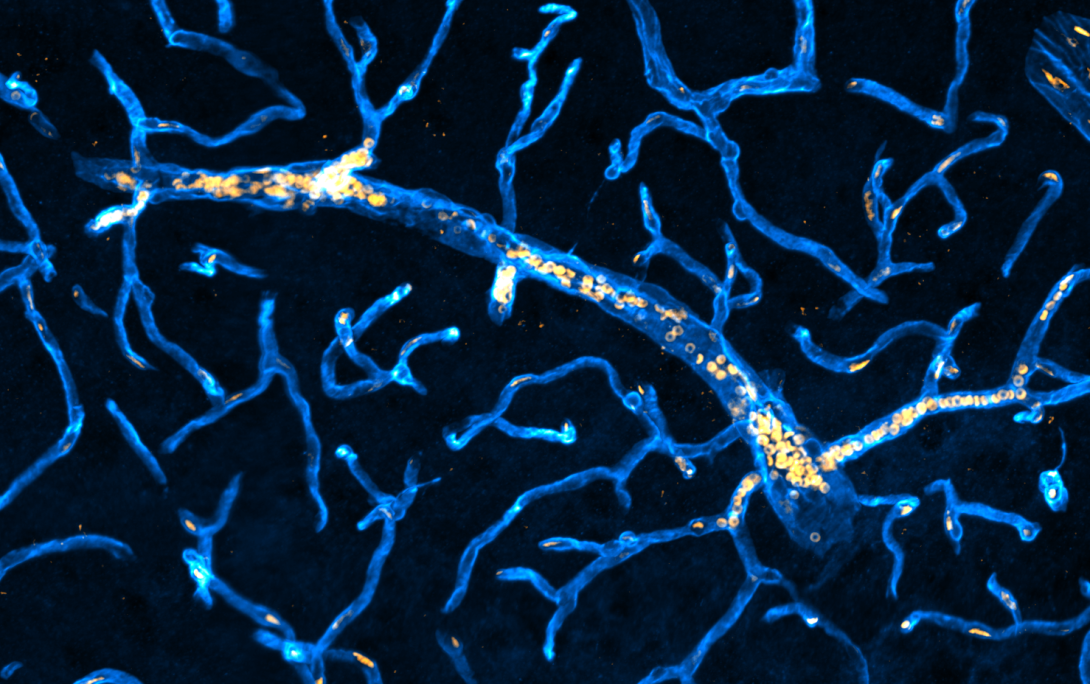
Red blood cells (orange) trapped in a brain arteriole (vascular marker in blue). Such micro-infarct are common in vascular dementia with the cessation of blood flow leading to neuronal damage and cognitive impairment. Credit: Dr Audrey Chagnot, Montagne lab.
Latest news
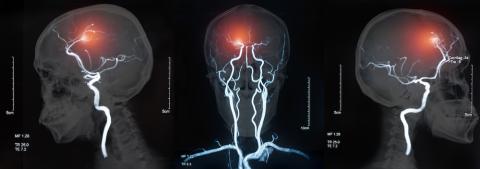

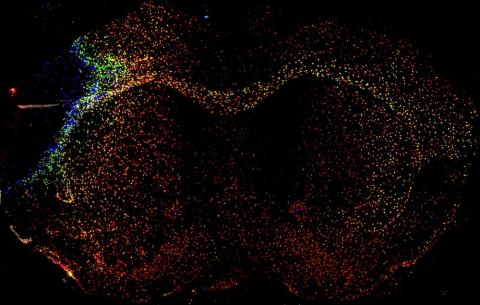
A deeper dive
Vascular cognitive impairment (VCI) refers to a class of diseases whereby cerebrovascular injury is a causal or correlating factor for cognitive decline. We are currently limited in our understanding of the basic mechanisms driving vascular dysfunction, hindered by the complexity of the heterogeneous nature of VCI, which differs based on its root cause (from genetically inherited to stroke induced) and the region and size of the vasculature affected (from arterioles, capillaries and small veins supplying the cortex through to those supplying the white matter and deep structures of the brain).
Cerebral small vessel disease (cSVD) is the most common cause of VCI and contributes to almost half of all dementia cases worldwide. It is characterised by cerebrovascular dysfunction, manifesting as structural and functional changes in the brain vasculature and parenchyma, including vessel wall thickening, weakening, and/or narrowing, cerebral blood flow dysregulation and blood-brain barrier (BBB) disruption. The understanding of pathophysiology of cSVD remains limited, however mounting evidence suggests an important role of the BBB in driving early cSVD pathology. In particular, brain endothelial cells, which form the BBB alongside other cells of the neurogliovascular unit, are believed to be key players at initiating and aggravating brain damage and is encouraged by recent positive clinical trials testing endothelial-stabilising drugs (hyperlink). Better understanding of the causes and downstream consequences associated with endothelial dysfunction in this pathological context will aid in the development of effective diagnostic and prognostic tools and provide promising avenues for therapeutic interventions.
The UK DRI is uniquely placed to address key gaps in our knowledge including the role of and mechanisms behind endothelial (Montagne, Wardlaw, Williams, Hunt) and related vascular cell dysfunction (Diaz-Castro, Montagne, Williams, McColl, Morgan, Hong) leading to a breakdown in vascular function, including the BBB. We are also studying vascular dysfunction within patient cohorts (Wardlaw, Malhotra, Matthews) providing a unique opportunity to bridge our clinical and pre-clinical work to allow effective bidirectional translation.
